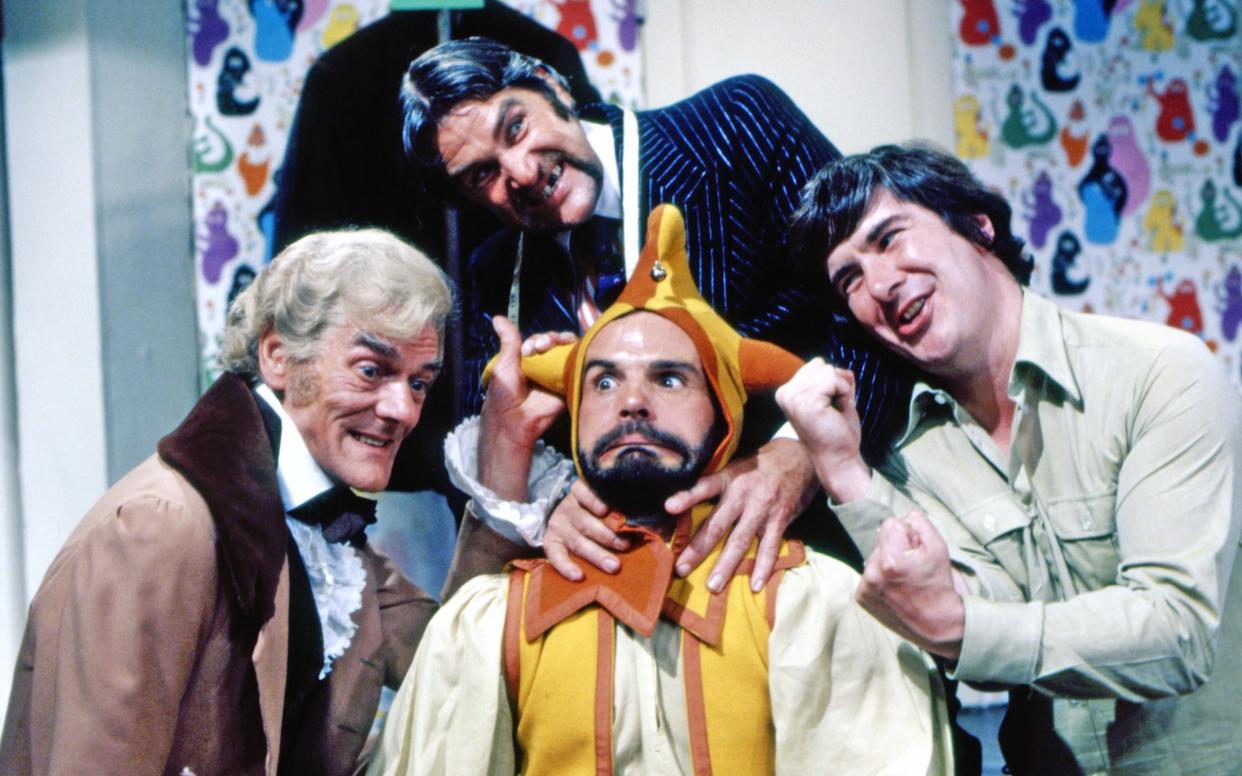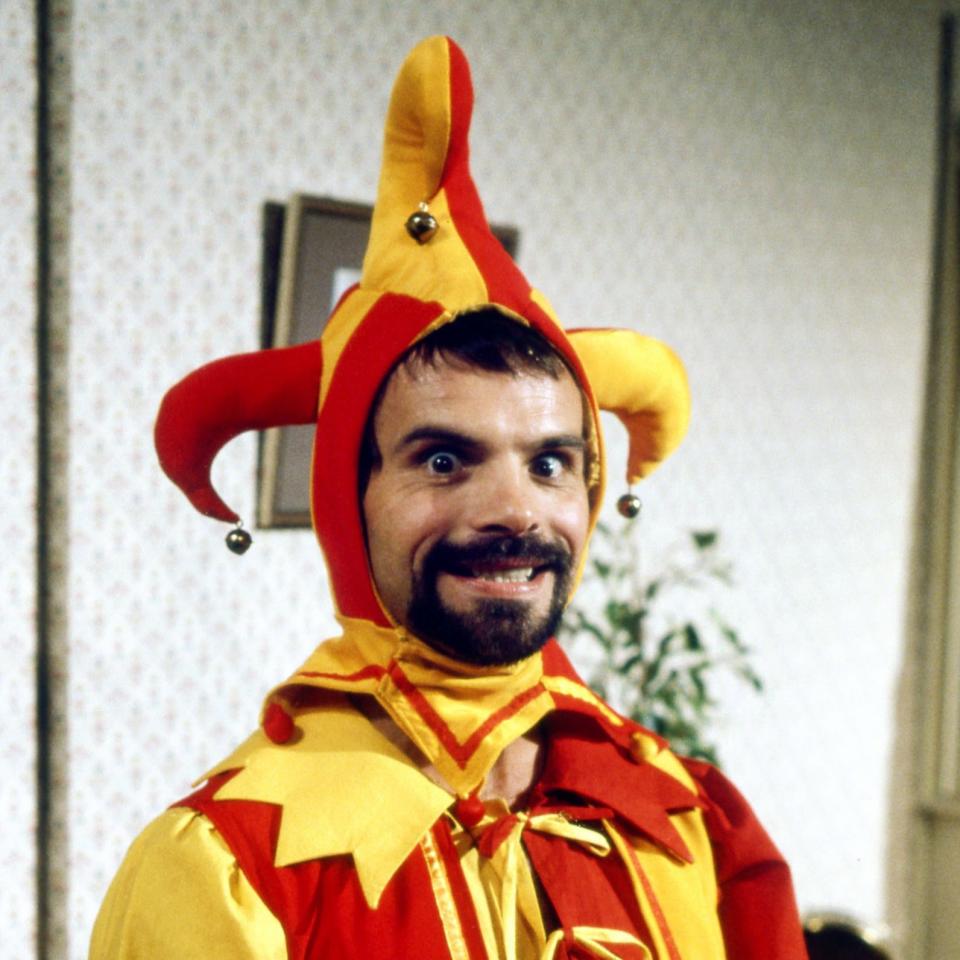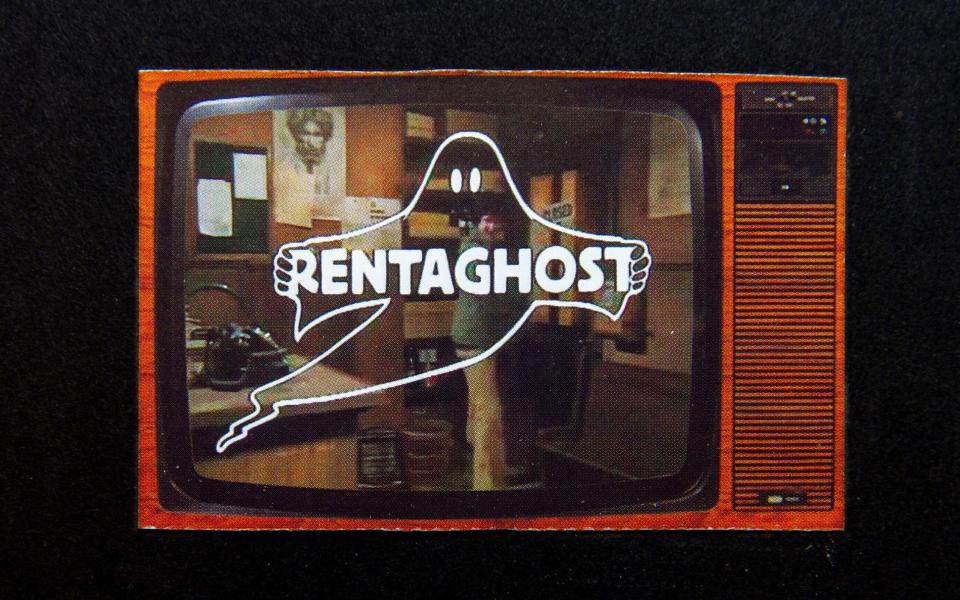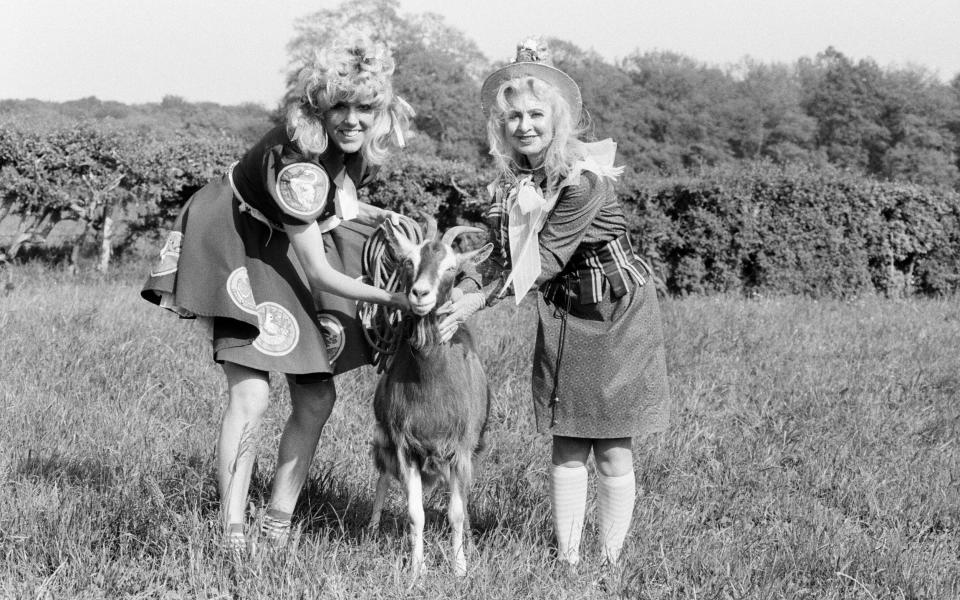Melancholy, madcap and strangely moving: why Rentaghost is as good as children’s TV gets

Rentaghost has recently materialised in its entirety – all nine series of it – on Britbox/ITVX Premium. Children’s TV shows are usually by their very nature ephemeral; aside from warhorses like Blue Peter and Grange Hill, which naturally renewed themselves every couple of years, it’s rare for a kids’ production to make it beyond a few series, particularly if it’s a drama or comedy. The audience grows out of them at one end, and wants something new and specially for them at the other. But Rentaghost began in 1976, when I was seven, and shut its doors in 1984 when I was 16, aeons in kids’ time. I was still watching – and by the end, I loved it even more.
Rentaghost was the baby of writer Bob Block (never to be confused with Robert Bloch of Psycho fame), a veteran of radio and TV who was 55 when the series first began. He had been part of the team that originated Life With The Lyons, a 50s family comedy that switched from radio to TV, and the very first British sitcom (although its stars, the Lyons themselves, were Americans).
There is something of the very fast-paced, gag-heavy, smack-you-in-the-chops American comedy of a much earlier era about Block’s work. As adult tastes matured it was perhaps inevitable that he would turn to writing for children, for whom that kind of humour never gets old until they get old. His shows for ITV children’s in the early 1970s, Pardon My Genie and Robert’s Robots, are very much in the Rentaghost vein – knockabout romps with domestic normality shattered by a fantasy element.
The normality is provided initially in Rentaghost by hero Fred Mumford, who although a ghost himself of very recent vintage, is a self-confessed ordinary bloke who failed at everything when he was alive. Mumford was played by Anthony Jackson, a rubber-faced actor best known as playing Sid James’s neighbour and “mini-me” in ITV domestic sitcom Bless This House. He starts Rentaghost, an agency for … well, renting the services of ghosts, out of determination to succeed after death the way he didn’t in life.

There is something terribly wistful about Mumford, which I don’t think was intentional. Even as a child viewer, I found him sad as well as funny. He is forever walking into walls rather than through them, and his organisational skills are sorely lacking. Out of sheer suburban embarrassment he hasn’t told his doting parents – John Dawson and Betty Alberge – that he is dead, an oversight that provides much of the comedy of the earlier series, as he struggles to hide his ghostly nature.
This is all played very light, but there is something ineffably melancholy about it – particularly when we learn that he died from drowning and his body was never found. The world, even his nearest and dearest, hasn’t even noticed that he has died.
Mumford sets out to hide other ghostly talent for his new agency. His two key appointments are Mr Davenport, a Victorian gent, and Timothy Claypole, a medieval jester. Davenport (Michael Darbyshire) is another slightly forlorn figure, visited regularly on Earth by his mother who died when he was an infant. This is another gag – an old chap being told off by a young woman – that carries an unintentional pensiveness.
Claypole (Michael Staniforth) is the most remembered character in Rentaghost, a capricious, mischievous sprite who quickly became the main attraction and stayed until the end. Staniforth was an incredible talent, a musical theatre star and accomplished dancer and acrobat, whose bright-eyed and bushy-tailed energy was immediately appealing to young viewers. There is something slightly scary about his tantrums when he is crossed; he is forever exacting revenge for slights by wreaking magical havoc.
Staniforth wrote and performed the Rentaghost theme, which anybody above a certain age can sing for you at the drop of a hat. The earliest version contains references to poltergeists, exorcism and the line “get scared to death, become a ghost too!” which BBC bosses were quick to blue pencil.
The human element is provided by Mumford’s landlord and partner in Rentaghost, Harold Meaker. Meaker is initially a somewhat shabby and aggressive figure, played by Edward Brayshaw, formerly a heavy or villain in shows such as The Avengers and Doctor Who. His role is softened with the introduction of his wife Ethel (Ann Emery, sister of Dick), another of the great joys of the show. She is the Judy to his Punch, forever boiling at the edge of exasperation, with dreams of suburban respectability despite having no taste at all.
The Meakers are tasteless parvenus, slightly seedy and dreaming of provincial respectability, with a yen for amateur theatricals and a permanently tense relationship. Watching these early episodes for the first time since 1976, I was astonished to see that they have a (mostly offscreen) baby – swiftly forgotten as their domestic life becomes one of the main focuses of the show.

At the end of the fourth series, in the Christmas special Rentasanta – inexplicably missing from the Britbox package – the series undergoes something of a sea-change. This is signalled by the arrival of Dobbin, a pantomime horse magically brought to life by Mr Claypole for the Meakers’ Christmas show. Dobbin is mute, apart from the odd neigh, but becomes a vital fixture of the show. There is something about the sculpt of his head – with its strangely long fluttering eyelashes – that is hilariously expressive. He becomes ‘soft’ on the Meakers, to their horror.
Michael Darbyshire died in real life in 1979, during the interval of a first night at the Theatre Royal in Windsor – a fine way for an actor to go – and Jackson decided to leave Rentaghost. For me, the fifth series is where Rentaghost really takes off. A strange folklore has settled around this point. Many people’s first reaction to mention of Rentaghost is to lament that it was never as good without Fred Mumford, and got “silly”. I don’t know what these people thought the incredibly daft early series were, but the way some of them talk you’d think they’d been watching Edge Of Darkness. There’s some everyday sexism there too, I think. For the imperial phase of Rentaghost (in my opinion) has lots of women in it.
The new ghosts hired by Meaker for series five are Hazel the McWitch, a Scottish hag straight out of Macbeth played by Molly Weir, complete with a broomstick and bubbling cauldron, and Tamara Novek, an Eastern European nanny with hay fever who sneezes – and vanishes – at the mere sight of flowers.
Incredibly, Tamara is played by Lynda La Plante, under her acting name of Lynda Marchal, shortly before she became a top drawer TV writer with Widows. After one series she left to focus on her blooming writing career, and was replaced by her similarly allergy-afflicted cousin Nadia Popov, played by Sue Nicholls, already a semi-regular as Audrey Roberts in Coronation Street. With her mittel-European accent, mangling of English and her unrequited ghostly crush on Mr Claypole (‘he lurrves me … he lurvves me not’), she is another of the later Rentaghost’s great joys.
Other invaluable additions to the cast are Christopher Biggins as the highly strung Adam Painting, proprietor of a local department store, and my personal favourite characters, Rose and Arthur Perkins (Hal Dyer and Jeffrey Segal), the Meakers’ next door neighbours. For some reason (the logic doesn’t hold, but let that not detain us), the Meakers don’t want the Perkins’ to know they’re associated with ghosts (this relies on the Perkins’ not noticing that Meaker runs – very publicly – a firm called Rentaghost, but never mind). In effect, the later series becomes a sitcom about trying and failing to appear respectable to the people next door.
The Perkins’ never do discover the truth – they think the Meakers are “nutters” with “very strange friends and that strange horse” (!), but they are permanently traumatised by the weird events happening next door – rain falling indoors, hens laying square eggs, etc. The Meakers attempt to make amends by gifting Rose Perkins a magic amulet that, unknown to her, grants her every wish. Unfortunately, the talisman takes everything very literally – “I wish I could burst into song at the drop of a hat”, “What I need is a really large cup of tea”, etc – which only makes things worse.

It is with this kind of utter chaos, as the plots get ever more tangled, and improbable events smash into each other, that Rentaghost really takes off. There is an uplifting joy at the conviviality and the sheer silliness of it all. Ethel singing a “Tangerine” at Biggins’s roller disco. Harold, made irresistibly sexy by a misdirected spell, being pursued by screaming fans who knock a sleepwalking Dobbin flat. A psychiatrist consulted by the Perkins looking up from his desk to see the entire cast suddenly standing behind them.
I’m reliably informed that it was a very happy set – not always the case with children’s TV or comedy – and that shows. You want to join them – they look like they’re having so much fun.
Rentaghost also provides a very reassuring, and surely unique, view of the afterlife. You just carry on – except with added spooky powers and endless mischief.
As the series nears its end there are more characters – a fire-breathing dragon called Bernie St John, Kenneth Connor as a forgotten ghost Whatsisname Smith, even Claypole’s former employer Queen Matilda (feared tyrant of the 12th century) – and the pace becomes ever madder, ever more frenetic and involved. There are moments of insane genius that reach Marx Brothers heights. But it was now ratcheted up to such a high degree that it must have been baffling to the new younger viewers tuning in.
So Rentaghost breathed its last. Block returned with sci-fi comedy Galloping Galaxies, but its heroes were too bland and stiff. Despite Kenneth Williams giving his voice to a wonderfully snitty, boggle-eyed computer, it lasted only two series. There are some very vivid ideas – an alien for whom time is going backwards, and a housewife who takes the whole thing in her stride – that seem maybe just a little too sophisticated and cerebral.
I’m happy to report that Rentaghost can still make you, as an adult, cry tears of laughter. It overwhelms you with its joyful absurdity – a flavour that we hardly ever see on TV, even kids’ TV, anymore.
Michael Staniforth died in 1987, at just 44. I hope he knew how loved he was.

